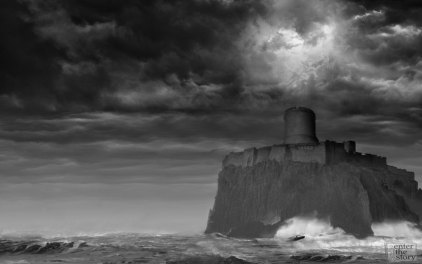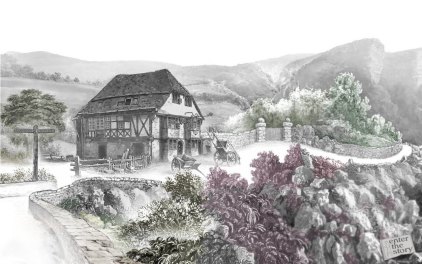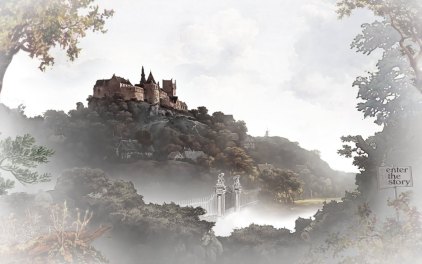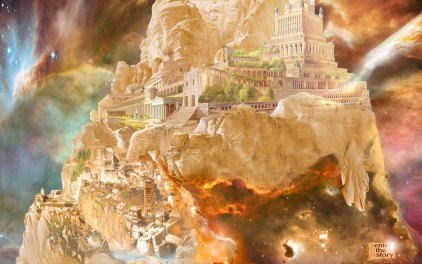
 You've probably heard of
The Divine Comedy from its first section,
Dante's Inferno. But the original
classic - and the game - goes much
further. This is a modern interpretation
of the medieval text, and stays faithful
to the core concepts - a walk through the
cosmos, discussing faith, history, and the
nature of right and wrong.
You've probably heard of
The Divine Comedy from its first section,
Dante's Inferno. But the original
classic - and the game - goes much
further. This is a modern interpretation
of the medieval text, and stays faithful
to the core concepts - a walk through the
cosmos, discussing faith, history, and the
nature of right and wrong.
The two experimental games
After the success of the first game, Les
Misérables, the next two were more
experimental. The Divine Comedy and
Genesis of The Gods are not like other
games, so be warned!
I'll be perfectly honest: The Divine
Comedy is the least popular of the games.
Why? Partly because it was
experimental, partly because there
were teething problems?,
but mainly because it stays true to the
original poem. The Divine Comedy is about
two people walking in a straight line,
talking about faith and history and people
they don't like. Despite what EA games may
believe, there is no fighting in the book.
There isn't even a plot in the modern
sense: this was written centuries before
the concept of the novel was invented.
Even the core of the book, the morality,
is dubious to modern tastes: corrupt popes
go to heaven, whereas Brutus, who fought
for democracy, is in the lowest level of
hell. The game may lack Dantes' medieval
language, but it is faithful to the pacing
and purpose of the book, and tries treat
the events as real, and to make sense of
Dantes' morality.
The
honestgamers.com
review calls it "slow" - yes, just like
the original poem. They called the script
"basic,"
"contrived," and "patronizing"
- yes, just like the original poem (at
least in modern translation, where the
medieval metaphors and references are now
alien to us). The review concludes that
the "biggest
problem... As an adventure, it's simply
too slow. .. There's no elegant
build-up, no powerful climax."
Yes, just like the original poem. That is
why everyone knows about the Inferno, and
nobody remembers the next two parts,
Purgatory and Paradise. Even Gustav Dore
had trouble making those sections look
interesting. If you want to know what is
in the poem, play the game.
|






































